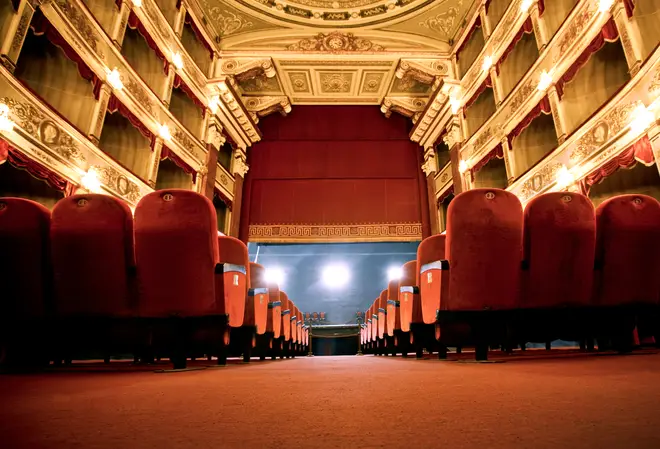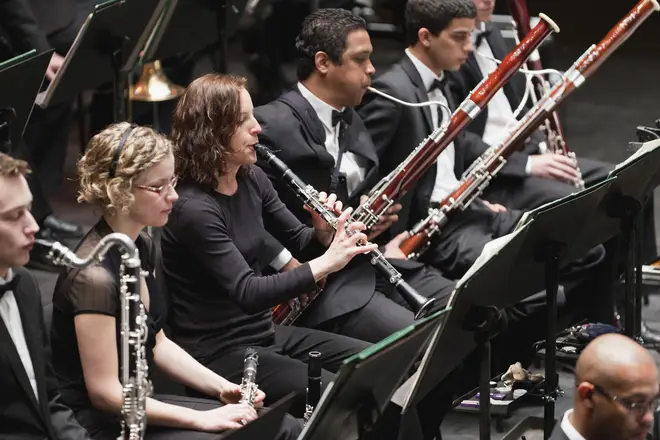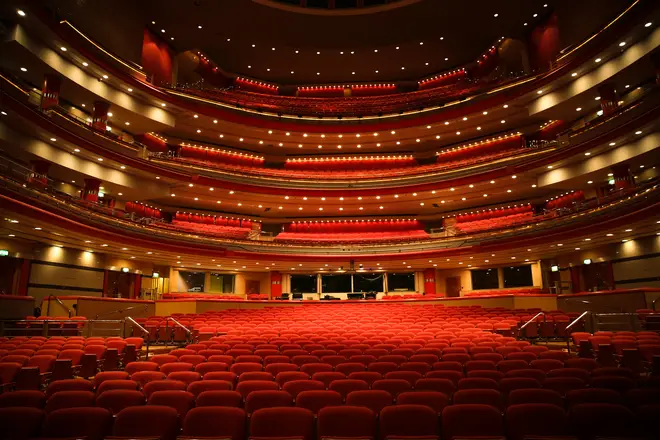On Air Now
Relaxing Evenings with Zeb Soanes 7pm - 10pm
7 July 2021, 09:25

An updating summary of the government’s most recent guidance for people returning to work in classical music and other performing arts – including where in England’s roadmap out of lockdown amateur rehearsals and live music fit.
A year ago, the coronavirus pandemic took hold in the UK and periods of self-isolation and lockdown, be they regional or national, became an increasingly expected part of everyday life.
After a summer where workplaces, businesses, venues and outdoor gatherings cautiously opened up and grew in size – and some live music returned – autumn and winter 2020 in the UK saw further national lockdowns. Essential work continued in COVID-safe environments, and this meant that professional music-making, including distanced rehearsals and performances delivered virtually, was able to continue.
Finally, a glimmer of hope for life returning to something closer to ‘normal’ was delivered on 22 February, when PM Boris Johnson announced his roadmap taking England ‘irreversibly’ out of lockdown, following the success of the UK’s monumental vaccine effort and pending certain criteria around controlling the virus being met.
But what are the rules for amateur music, and when can the arts open its venue doors and invite audiences back?
Read more: So, the government has said live music can return with no restrictions on 19 July?

Let Music Live protest on London's Parliament Square
One-to-one socialising was permitted outdoors and care home residents were allowed to receive one visitor.
This one saw outdoor gatherings within the ‘rule of six’ permitted, as well as the return of outdoor sport and some travelling out of local areas (but no overnight stays). Leisure-time music saw no sign of being allowed, and confusingly, according to charity Making Music, amateur music groups are still not permitted to meet up, even outdoors where leisure-time sports teams are kicking balls to each other and playing freely.
Making Music chief exec Barbara Eifler said: “I am puzzled by this unwarranted distinction between amateur football, gardening or photography clubs and community music activity. Last autumn, when meeting was permitted, Making Music members demonstrated their ability to risk assess their sessions, implement required mitigations and rehearse safely. Why not let them meet now and experience the healing effect of group singing and playing?”
A big one. Non-essential shops, hairdressers, pubs and restaurants with outdoor seating, and indoor leisure facilities like gyms were able to open. People still can’t spend time inside entertainment facilities, so, even though zoos, theme parks, drive-in cinemas and libraries have the go-ahead to operate, music venues remain closed. And due to the focus on meeting up outside only, still under the ‘rule of six’, the government has been reluctant to let theatres and concert venues open, even in a limited capacity. And, as above, no choir, band or orchestra can meet outdoors, except in socially permitted groups of six or two household.
Concert halls, theatres and other venues were finally allowed to open to the public, along with cinemas, play areas, hotels and hostels. And indoor dining at restaurants and pubs started to ahead again on this, the biggest lifting of restrictions. The ‘rule of six’ still applies to social parties, but this stage of the PM’s roadmap allowed concerts, musicians and theatre performed in front audiences to go ahead for the first time in 2021, albeit in a limited capacity.
Wigmore Hall and Liverpool Philharmonic Hall – the home of the Royal Liverpool Philharmonic Orchestra, Classic FM’s Orchestra in the North West – announced concerts welcoming live audiences to return in a reduced capacity on 17 May.
“It is hoped all legal limits on social contact can be removed”, said the government of this stage, and the ambition is for nightclubs and large-scale events like festivals and big performances to return to our lives.
The date of the final lifting of restrictions was originally intended to be Monday 21 June, but in a press conference on 14 June, Boris Johnson announced that the final step of opening up – ‘Freedom Day’, as many had come to call it – will be delayed by a further two to four weeks, with the PM determined that all restrictions should be able to be lifted on Monday 19 July at the latest. The hope is for social distancing and masks to be a thing of the past, and Boris Johnson announced that used would be based on individual choice from 19 July.
The date change was due to the government’s four criteria around combating coronavirus not being met, specifically around the uncertainty and rising positive cases caused by the latest COVID-19 variant of concern, the Delta variant which was first identified in India.
Note: other UK nation’s key dates may vary.

Outdoor concerts, plays and opera get government go-ahead
Yes. Arts professionals and organisations are able to rehearse in their places of work and present online performances, as long as safe social distancing is adhered to.
When Boris Johnson announced a second national lockdown for England back in October, culture secretary Oliver Dowden confirmed: “Arts venues are places of work, so people can come into them for work, if it cannot be undertaken from home. This includes rehearsals and performance.” Audiences are not permitted during periods of lockdown, when the public is advised to stay at home as much as possible.
Orchestra pits and other designated band areas on the small side were identified by the government as presenting extra risk earlier in the pandemic, so it has put in place extra steps to maintain safety in those areas – including spreading musicians out beyond the pit, using markings to ensure social distancing is maintained, and avoiding having musicians face-to-face, with protective barriers required if that can’t be avoided.
Visit www.gov.uk/guidance for full guidance, and always refer to government sources for the most accurate and up-to-date information.

Since national lockdown lifted on 17 May 2021, and indoor gatherings of no more than six people were allowed, the ‘rule of six’ applied to all indoor amateur music-making as well. Up to 30 people are allowed to meet outdoors, so amateur choirs and ensembles of that size can rehearse and perform outside, until 19 July when all COVID restrictions are officially lifted.
The government guidance states:

The government originally advised that professional players “keep to the smallest number of singers or wind and brass players in one space, enhancing social distancing”, i.e. making the distances bigger to three metres.
Read more: Cathedral choirs given £2m lifeline, as they fight to survive COVID-19
But now brass, wind and singing is allowed for music workplaces, the government does stipulate extra caution, including limiting numbers of performers where possible, and favouring outdoor performances over indoor ones, as well as limiting social gathering opportunities at rehearsals or performances.
The government’s step-by-step guidance for the return of singing, and professional music-making with brass and wind instruments, can be seen in more detail here.
Visit: www.gov.uk to find out more.